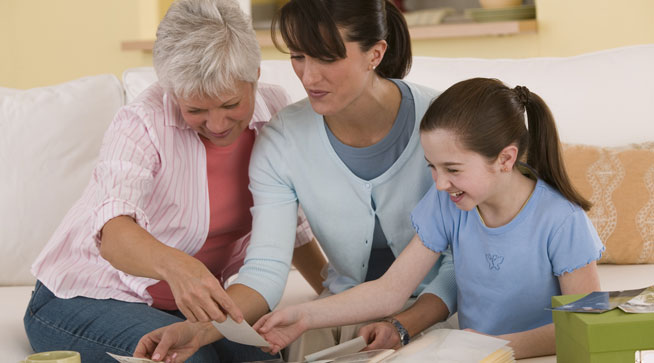How our mothers make us
In order to establish happy relationships in adult life, we need to untangle the emotional patterns passed down from our mothers. By Emma Cook

You may view your mother as a close friend and confidante, relying on her judgement and approval to maintain your self-esteem — or maybe you keep her at arm’s length to protect your independence and identity.
Whether you feel close to your mother or not, this crucial bond will have an impact on all the other relationships in your life.
‘Whatever I achieve is never quite good enough for my mother,’ says Caroline, a 42-year-old art lecturer. ‘She had extremely high standards for herself and always felt mediocre, even though she was an established artist. She views me through the same lens.’
Narcissistic mothers like Caroline’s are often too overwhelmed by their own needs to pay attention or recognise their children’s needs. Daughters can often feel very negative as a result but, as Stephen Poulter, author of The Mother Factor, says, ‘Try to reflect on your mother’s style without feeling too critical of her. Developing insight is the only way to take ourselves beyond blame.’
Rachel, 38, used to confide in her mother and then feel let down when she would worry, rather than containing Rachel’s anxiety and offering support. ‘If I had a problem, she would somehow make it her own, and I would end up reassuring her. Now I make a real effort not to over-share. I try and work through problems before I burden her. It feels a lot healthier and we get on better as a result.’
In close relationships there is often a key emotional issue that triggers anxiety and insecurity, re-activating childlike responses that can feel irrational and overwhelming. ‘Whenever I feel my partner trying to manage me or attempt to organise my life, my response is irrationally extreme,’ says Anne, 35, a full-time mother. ‘He’ll always say, “I’m only trying to help; I’m not your mother,” and that’s when the penny drops. My reaction isn’t really about him at all.’
Anne says her own mother could be very controlling. ‘She found it difficult to let me explore, be myself and take risks,’ she says. ‘So if anyone tries to hem me in, it pushes a button.’
‘When these emotional triggers are set off, try to take a step back,’ advises relationship psychologist Jacqui Marson. ‘Think about what you’re projecting onto your partner and be aware that these feelings are based on childlike notions of feeling powerless, thwarted or criticised. Being able to take a dispassionate view of these patterns is an important beginning.’ When daughters become mothers themselves, they emulate their mother’s style of parenting or react against it.
‘My mother was very inconsistent,’ recalls Nina, 37. ‘She was a young mum and there was little sense of routine or predictability. Sometimes I remember her letting me eat bags of sweets for tea. She was really a child herself.’ It’s not a mothering style Nina wants her own daughter to experience. ‘I’ve deliberately gone the other way. There are strict mealtimes and bedtimes. I want her to feel safe and know where she is — something I never felt myself.’
Yet there are dangers in reacting so strongly in the opposite direction, says psychologist Dr Rebecca McGuire-Snieckus. ‘If, for example, your own mother was always highly judgemental, and you go the other way and never criticise your child, it’s just as unhelpful for her self-esteem. Be more mindful and try to find a middle point.’








